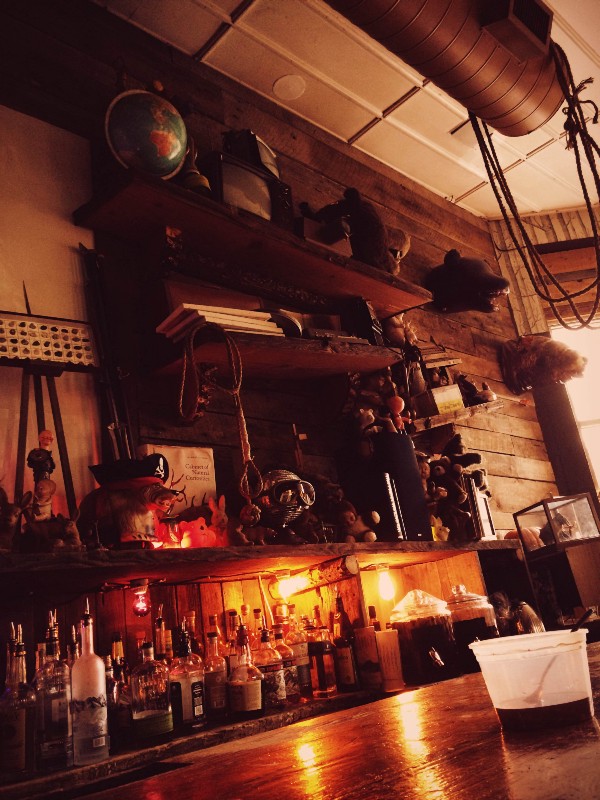Alaina Moore (of Tennis) on surviving a tornado, loving Gwen Stefani, teaming back up with the Black Keys’ Patrick Carney.
The Colorado outfit’s new album, ‘Ritual In Repeat’, is again produced by Carney.

Tennis, comprised of Alaina Moore on writing/singing duties, Patrick Riley on guitar, and James Barone on drums, sounds as nice as autumn in Denver. If you’ve ever spent time up there, you’ll feel it; the city can be cold, but the people are welcoming. It’s the kind of town where you want to be out tossing a frisbee in the park as much as you want it to rain so you can nap on the couch with the window open. It’s smaller than Austin, and only slightly larger than Portland, with hipster echoes of both cities calling out to you as you drive down Colfax or stroll around the 16th Street Mall. For hometown duo, Tennis, you’ll pick up on this in their music without them ever mentioning it explicitly.
As with any cold weather environment, there’s certainly room for somber feelings to set in. What Tennis does a great job of on their newest offering, Ritual In Repeat, is capturing the feelings of being in Colorado through each of its seasons–and in the Mile High City you really do get all four. The soundscape of the album is like the landscape of the city; Riley’s soliloquizing guitar solos when laid down over Barone’s pulsing drum loops sound like a trip through the Colorado wilderness, carving out plenty of room for Moore’s crisp, cool vocals that feel like a night time walk through Denver’s Lower Downtown (LoDo).
While this writer is convinced, Moore doesn’t hear it so explicitly.
“I’ve thought about it a lot lately,” she says over the phone, “I have a feeling that [the city] affects me tacitly because I grew up here. Often I don’t think I hear Colorado in my music, but maybe that’s because it’s too much a part of me to even identify it.”

Sitting on a stump at one of her favorite bars, Denver’s Forest Room 5, a converted space that was formerly one of the city’s first art houses, the bluegrass banjo and fiddle of John Hartford fill the homey space when I ask a scruffy, welcoming bartender named Pablo about Tennis.
“I hear Colorado in their music, but I think it’s ambiguous enough that it could work in cities like this across the board and on pop radio, too,” says Pablo, who met Barone about three years ago.
With a week off from their tour, Moore called to talk about tornados, Gwen Stefani, teaming up with Patrick Carney once again, and her own quirky, pre-show rituals.
Sama’an Ashrawi: What has it been like working with Pat from the Black Keys on the past two Tennis albums?
Alaina Moore: It’s been really great. We all wanted to work together more than once because it takes more than one project to build a relationship. I want to work with him again because we’ve really established trust, and have begun to learn each other’s mannerisms, and how to communicate ideas. It’s so much more rewarding when you can relate to each other in that way.
[Working on Ritual In Repeat] was so much more intense yet so much easier. We were more open, and he was able to help us work through some songs that had potential but were incomplete. I don’t know if they would have been finished without him.
SA: Did the song “Never Work For Free” come from a personal experience?
AM: I think that song started off more stream of conscious. What I normally do when I write is start with a phrase that I like, whether I think it’s aesthetically pleasing or maybe it has some kind of message that I want to unpack. I started with “I’ll never work for free / No, I can’t give up what never belonged to me” and I turned it into a poem. The true meaning is not what anyone would get out of it by reading it. I feel like my experiences are not even remotely universal. I come from a big family, and was homeschooled in a very sheltered environment. I feel like I have a strange world view and draw from unrelatable experiences. To be completely honest, I’m just not sure I’m ready to share my experiences so openly with the world. When you have something that is really sacred to you, it’s only special when it’s yours. So I purposely ambiguate my song lyrics so that listeners can infer their own meaning.
SA: Maybe to take a more literal interpretation of that song, what’s the worst job you had before you started making music?
AM: I worked at Chili’s for six years. It’s funny because I have a friend from childhood who works at Chili’s now who texted me recently to say one of our songs was playing at Chili’s. That was a pretty triumphant moment.
SA: What kind of zone do you have to be in to make a groove like “Meter and Line?” To me, it sounded like standing on a mountain, looking down into the valley on a cold day.
AM: I’m really glad you asked about that because It’s actually one of the most special songs to me. When I wrote it, it was quite different–just my voice and a guitar. I wanted it to be intimate and sincere because the song is for Trish Keenan, former lead singer of the band Broadcast. They’re my favorite band of all-time and the most influential on our music. She always sings in iambic pentameter, it’s personal but ambiguous, her imagery is pastoral and moody. Her melodies are hypnotic and she was obsessed with 3/4 time which is the rhythm I naturally write in. My bandmates always have to convert what I write to 4/4 so they can play rock n roll. But Broadcast turned a less common meter it into this hypnotic experience of pure and simple melodies buried in a dreamy soundscape. She passed away while we were on tour in Europe several years ago. We were both scheduled to play Primavera Sound in Barcelona, and it would have been my first time seeing them live when she died suddenly of pneumonia. It was jarring and everyone was heartbroken. In the song I sing, “hope of my heart a’trembling/ like winter flowers cold springing/ i see her lying there unchanged/ drifting along the astral plane.” I imagined a cold, empty landscape–an environment that speaks to loss.

SA: Do you have any rituals you just have to do in the studio or before a show?
AM: I have this thing where in order to prepare for a show, I need the two hours before showtime to myself. I sing scales for 15 minutes, take a break, change my clothes, scales for another 15, do my makeup, then finish warming up. When I do my makeup in the greenroom I need a mirror, but the mirror is usually covered in band stickers. Why do bands cover the mirror with stickers? Are they advertising to other bands? What do I care if “Skeletal Closet” played this club last year? Who are these bands advertising to? Other bands? I just want to get ready for the show. I don’t care about your band. It’s not narcissistic to want to check a mirror and make sure you don’t look insane before you go onstage, but it is narcissistic to completely cover a greenroom’s walls with your stupid band’s stickers. It’s never cool like “WOW Nirvana played here!” Just a dumb band no one’s heard of. So I spend like an hour OCD-style peeling off all the band stickers. It is the most cathartic experience in the world.
SA: How do you like to explore?
AM: I guess we go exploring in a very literal sense– that’s why we have a sailboat. We are planning to sail to French Polynesia within 1-2 years. In almost like an old-timey sense of the word, we explore. It’s easier to do than you think.
SA: Have you ever had any supernatural experiences? Seen any ghosts?
AM: No, but we did drive through a tornado on tour. That might as well have been a supernatural experience. It’s still the scariest thing that’s ever happened to me. At first, when we saw the tornado forming, driving from Chicago to St. Louis, we were all taking pictures and excited, but as it got closer we became deathly silent. We were thinking, “This could be the last minute of our lives,” and no one could say anything. We stopped under an overpass, and after the tornado blew over, we saw a semi-truck turned over across the highway. Thank goodness, the driver was okay. It was nothing like the (almost) plane crash scene in Almost Famous.
SA: Who are some strong women role models you had growing up?
AM: I think if I am very honest, there’s only one answer to this question and it’s Gwen Stefani. Return of Saturn was my favorite album growing up and I knew every word. I used to light candles in my room and listen to it before I went to bed. She’s really tough; I’ve always been attracted to girls that are feminine but have a hard edge. It’s a little bit protective. I’ve since graduated to loving Patti Smith, but when I was younger I didn’t know who Patti Smith was. The confidence and toughness tempered with vulnerability makes Gwen Stefani special to me. She was very much herself compared to the Britney Spears’ of the time. It’s nice to have someone like that for a girl who was, well– I was painfully uncool.
— Sama’an Ashrawi
this article originally appeared on A Country Called Earth, thanks to Ferrari Sheppard.
